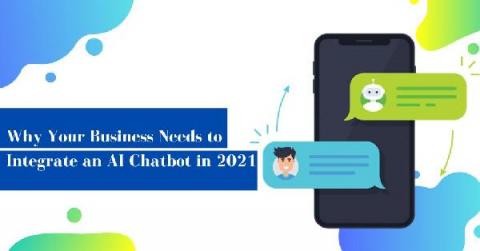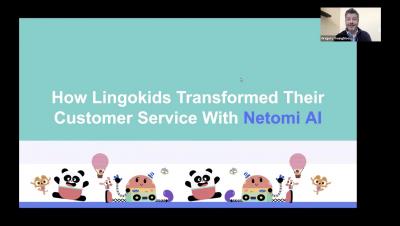Teams | Collaboration | Customer Service | Project Management
AI
Use AI in Customer Service To Transform Your Customer Experience in 2021
We often hear that Artificial Intelligence is the future. The truth is that it’s already here, and if you’re not already using AI for customer service, you’re missing out. Integrating AI into customer service can drastically improve CX. It helps identify customer pain points, automates processes, speeds up decision-making, and optimises service delivery.
How do customers really feel about conversational AI?
Automation got a bad reputation pretty quickly in the customer service world. Since the 1980s, customers calling support have had automated tellers putting them on hold and repeating the unconvincing assurance, “Your call is very important to us.” Automated tellers turned into chatbots. This technology could be just as frustrating with bots conducting clumsy conversations that fail to provide real help.
Why Your Business Needs to Integrate an AI Chatbot in 2021
Chatbots sit in an interesting space in the digital world. On the one hand, they clearly offer potential. The ability to answer queries and take the menial workload off means more work-hours saved. And yet, there are considerable hurdles to implement them. Firstly, AI-powered chatbots are hardly perfect. How many times have we had a hilarious encounter with a chatbot which keeps giving us answers we never asked? Often, the very utility of conversational AI-powered chatbots is questionable.
AI Customer Service Case Study - Featuring Lingokids
Artificial Intelligence vs Machine Learning in Technology
As children we believed in magic, imagined, and a fantasy where robots would one day follow our commands, undertaking our most meager tasks and even help with our homework at the push of a button! But sadly it always seemed that these beliefs, along with the idea of self-driven aero cars and jetpacks, belonged in a future beyond our imagination or in a Hollywood Sci-fi. Would we ever get to experience the future in our lifetime?
Ethical artificial intelligence: the most important movement you've never heard of
Fake news spreads six times faster than factual news. The algorithms built into social media software, in an effort to hold our attention, feed us information that triggers the basest instincts of our complex psychologies. These are some of the starkest realities exposed in the Netflix documentary “The Social Dilemma.” Holding our attention is what the robot (if you will) was programmed to do. And it’s doing its job really, really well.
Part 2: How Artificial Intelligence Is Affecting the B2B Customer Support Sector
The main focus of B2B companies is to offer unmatched support to their customers. Failing to do so will increase the likeliness of customer churn and also damage their reputation.That’s why an increasing number of businesses are leveraging AI every year to enhance their brand and provide a level of support required to stay competitive. In Part 1 of this series we introduced the first two of five ways AI is impacting the B2B customer support sector. Here are next three ways.











